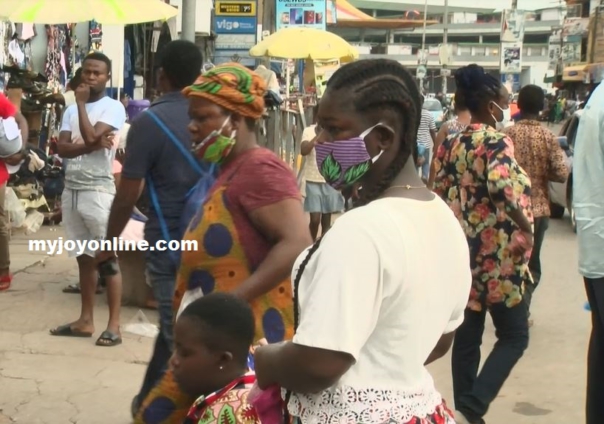The Leader of Risk Communication for the National Covid-19 response team has cautioned Ghanaians not to be complacent about the rapid reduction of the infection rate.
Dr Dacosta Aboagye said that the drop in the local infections (community spreads) is as a result of the compliance to the measures put in place by the government, Ghana Health Service, Ministry of Health and other stakeholders like the media.
He believes that in spite of the reduced Covid-19 infection rate, the nation is still at a critical stage in the fight against the pandemic, which requires intensified public education and community engagement.
His fears that out of complacency citizens might let down their guard on the safety protocols, leaving them open to the spread of the virus.
“The reason why I said we have reached the critical stage in the fight against the COVID-19 is that as a country, this is the time that we have to see the need to intensify public education, community engagement like house-to-house education and make sure that every Ghanaian is adhering to the safety protocols; wearing of the face masks, regular washing of hands of at least 20 seconds with soap under running water,” he cautioned.
In addition to adhering to all existing safety protocols, Dr Aboagye encouraged Ghanaians to maintain a healthy diet to help fight the virus.
“If you are leaving your homes, please wear your face masks because it is a law to wear them and the police are still enforcing that law.
"We have gotten to a point in the fight against the virus where the citizens have to help us to eradicate the infection from the country entirely as we continue to ease some of the restrictions”.
“This is the time that every Ghanaian should eat a well-balanced diet from local foods and adhere to all the preventive measures to avoid what we call the second wave.
"We should not be complacent that the infection rate is reducing and so we will not comply with the safety protocols; we should not be complacent”, he said emphatically.
He called on the media to use their channels to educate the public on the need to stay safe as the fight against the virus had reached a critical stage.
Currently, there are no recorded Covid-19 cases in the North East, Savannah, Upper East, and Upper West Regions, and residents have been charged to do everything possible to maintain that situation.
Greater Accra, Ashanti, Central, Eastern, and Western continue to be the Regions with the highest number of active cases.
Thus far, a total of 40,567 persons have recovered from the virus. This means the nation's recovery rate has improved from 89.5 per cent to 95.1 per cent in three weeks.
Latest Stories
-
Former Deputy Minister calls for accountability and judicious use of state resources
22 minutes -
Prof Bokpin backs the IMF call to BoG to reduce their FX interventions
35 minutes -
Insurance industry players create awareness through “Insurtainment” games
35 minutes -
NSA boss sounds alarm on the state of facilities, calls for patience from Ghanaians
37 minutes -
Rotary Club of Accra Ridge unveils plans to boost mental health awareness and community development
47 minutes -
The United States and Israel will make new attempts to attack Iran
49 minutes -
New U.S. Visa Rules: Most Ghanaians now limited to single-entry, 3-month visas
51 minutes -
Women farmers at Savelugu, Nanton engaged on government’s agricultural policies
53 minutes -
Onesta Ghana launches Redgold Palm Oil project to boost local production and cut imports
57 minutes -
NDC’s ‘1-3-3’ job promise missing from policy document – Miracles Aboagye Claims
57 minutes -
Two arrested over alleged attempted robbery
57 minutes -
Unichem Group and LUEX Healthcare UK premier legacy documentary, ‘All together now’
1 hour -
Keeping it agile in Ghana – how top tech is transforming modern work
1 hour -
Joining Randers was the perfect opportunity to show my talent – Mohammed Fuseini
1 hour -
Global leaders underscore child protection as foundation of resilient families at SFC 2025
1 hour

